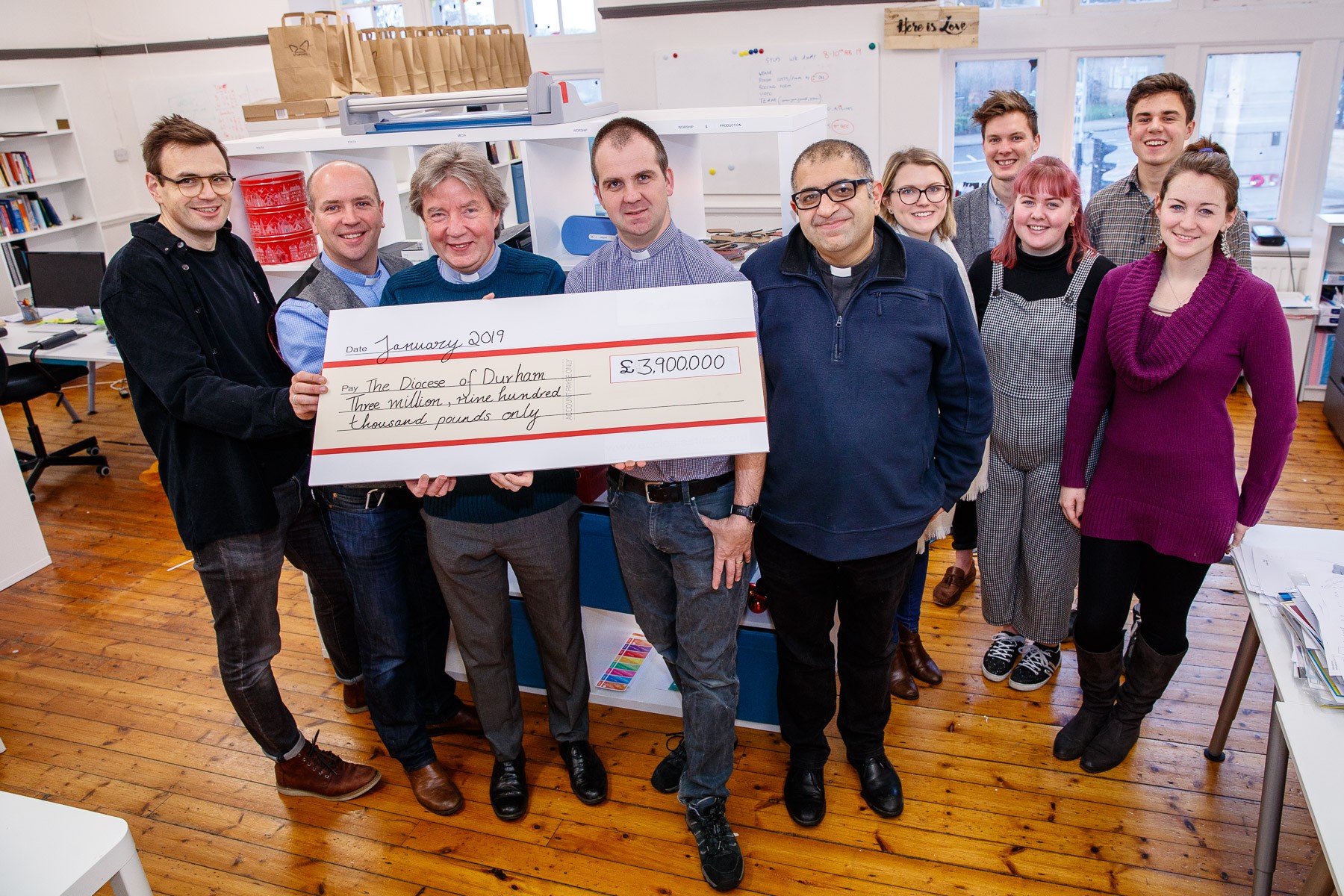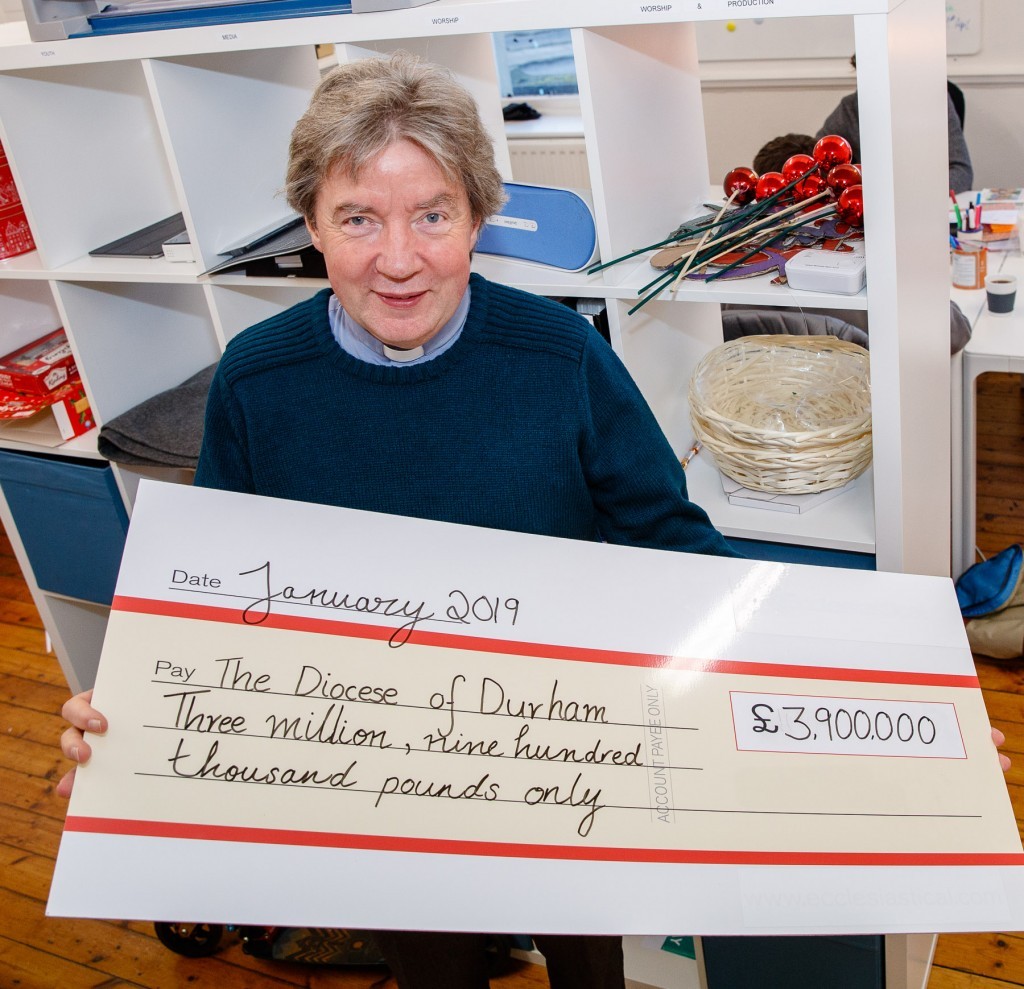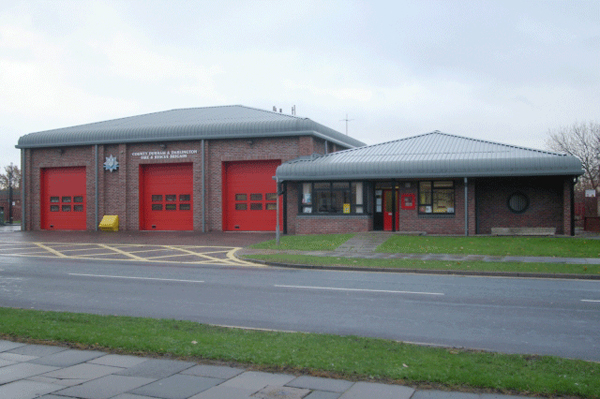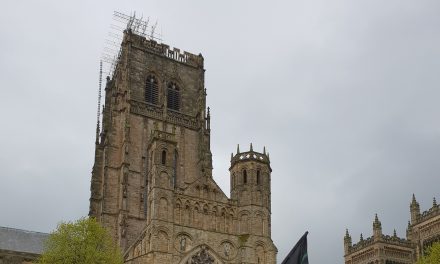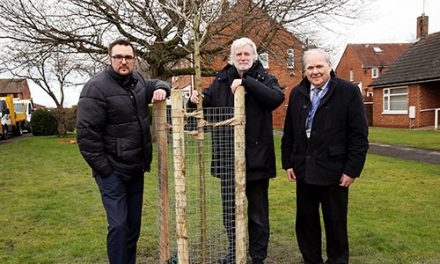The Diocese of Durham has been awarded 3.9M pounds to help develop new Christian communities in the North East of England.
The award from the Church of England is part of £35M awarded to dioceses across the country this month in support of church growth through the Churches Strategic Development Funding (SDF) programme. In the Diocese of Durham five (5) projects will benefit from the award over a 6 year period, for activities designed to grow new church communities in Bishop Auckland, Stockton, Durham City, Washington and Gateshead.
Each project is different, but each is focused on sustainable growth and innovative approaches which include the development of a social media ‘pastor’ in Stockton; the creation of a new Discipleship community in Durham and the planting out of a new church in Gateshead. These are just a sample of activities amongst the ambitious plans for growth recognised by the award.
The Rt Revd Paul Butler Bishop of Durham said: “The North East of England has long deserved this kind of investment. We are a people rooted in the Christian faith and tradition. It is our privilege to serve all the people of our region.
“The relevance of the Church is as important as ever. We all know we are in troubled times. Finding new ways to grow communities through effective Christian living such as that demonstrated in these projects will deliver hope and aspiration to many in our region.”
Senior Resourcing Church Leader, the Revd Canon David Tomlinson who is leading the Diocese of Durham’s programme said: “Building churches requires inspirational leaders at all levels, people committed to prayer, to exemplifying a radical Christian life, teaching, encouraging, and exhorting as they go.
“This next stage of development funding, which builds on work already started, will allow us to be radical in our approach to Church growth. This work will involve creating ‘Resourcing Churches’ that are then further planted, growing church and transforming society.
“Resourcing churches are established to be catalysts of church growth and development.
They have an agenda that looks to the wider community rather than looking inwards and have
a proven track record across the country of reinvigorating churches and driving community engagement.
“In order to do this we need to create ‘Mission Energy’ and I liken this to the analogy of dropping a mint into a bottle of fizzy drink – and the explosion of energy that we are all too familiar with. That is what we hope to achieve, we will introduce a range of external stimuli into our mix and in doing so gain an explosion of growth and a permanent change in our way of being Church.”
It is hoped that the funding will see the development of new missional communities through the Diocese. David comments: “Missional communities can mean many things, but here it means planting groups of people into an estate or neighbourhood in such a way that the neighbourhood experiences transformation, this is by a sharing of the gospel, building community capacity, engaging with local needs.”
One of the innovative missional approaches being developed is The Community of St Cuthbert which will seek to renew and inspire discipleship across the Diocese leading to numerical and spiritual growth. Based in Durham City it will promote a rhythm of life inspired by the monastic tradition and disciplines exemplified by the life of Cuthbert.
David commented: “As a premier division northern saint, Cuthbert was a man who sought to introduce Jesus to a whole generation. Shaped by prayer and study, driven by a love of the gospel and the salvation it contained, Cuthbert offered a gospel for all.
“Today’s funding announcement will allow us to forge a new community seeking to establish prayerful, missional groups across the diocese, in the same way, Cuthbert did, more than a thousand years ago.”
David added: “Individuals will be called to a life of prayer just where they are, in school, college, home, or the workplace. Meeting in small groups members will commit themselves to the common-good, transforming their communities through Christian concern and action. It is anticipated that vocations will shine brightly as discernment of individual giftings is celebrated, releasing a new generation of leaders into the wider church.”
Diocese of Durham Awarded £3.9M for Growth
